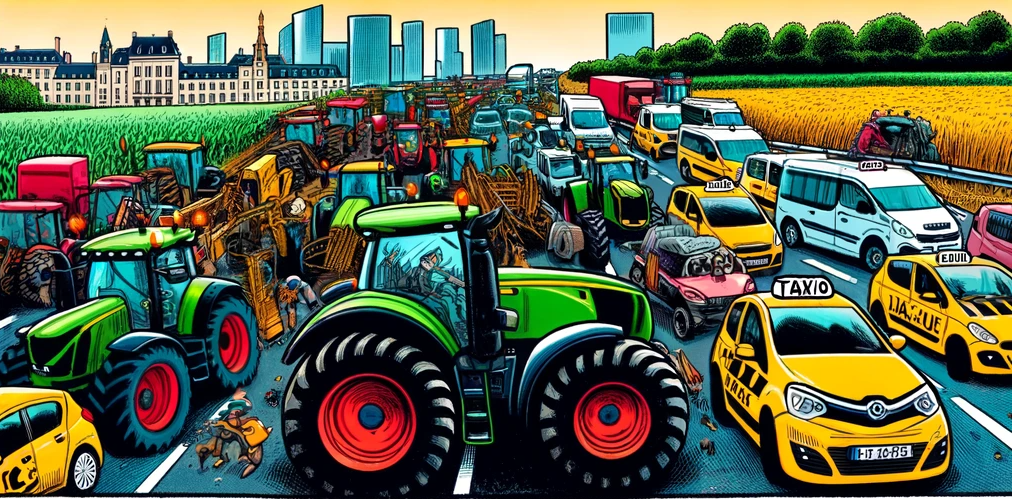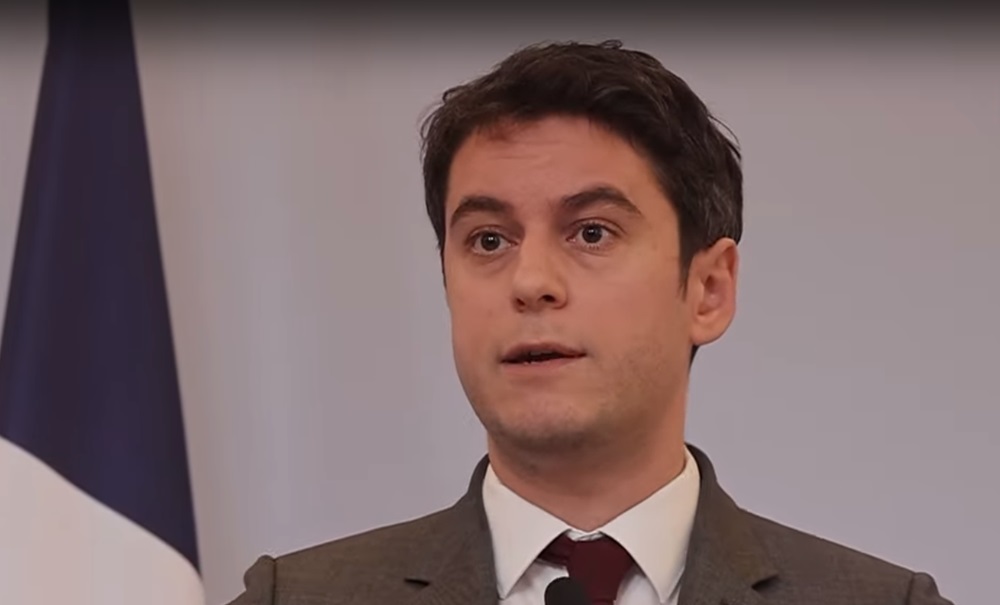The developments in France highlight growing tensions within Europe's agricultural sector, where farmers are increasingly raising their voices against what they see as unjust economic and regulatory pressures.
French farmers, backed by the country's largest agricultural union, the FNSEA, have organized mass protests that caused significant traffic disruptions, particularly in and around Paris. These actions were in direct response to the increasing challenges facing France's agricultural community, including rising fuel costs, delayed European Union subsidy payments, increasing bureaucracy and competition from imports.
The farmers adopted a strategy of blocking major roads into and out of Paris with their tractors, causing significant traffic disruptions. For example, the A1 highway, which connects Paris to Lille and Belgium, was effectively blocked by tractors and hay bales. According to the FNSEA approximately 55.000 people took part in this national mobilization.
taxi drivers
Besides the farmers, taxi drivers have also announced that they will protest. These actions could lead to significant traffic problems and disruptions in several French regions. This unprecedented collaboration between two very different professions has led to extensive traffic blockages across France, significantly disrupting daily life in major cities and beyond.

These coordinated actions highlight the growing frustrations among both farmers and taxi drivers. Both groups feel cornered by government policies that threaten their business operations and livelihoods.
The farmers, supported by the Île-de-France FRSEA, have identified eight key points for their blockades, including the A1 at Chennevières and the A4 at Jossigny. In addition, other cities such as Lyon and Marseille have also been affected by similar actions. In Lyon, the local branch of the FNSEA, together with the JA, has called for a 'snail operation' from the Monts du Lyonnais, followed by blockades on the A450. The situation in Marseille is equally complex, with the addition of taxi drivers opposing the patient transport rates set by the Assurance maladie.
The impact of these protests extends beyond major cities. In the Pas-de-Calais expected that the A16 will be blocked from 9 a.m. to 17 p.m., while in Corrèze diversions will be in place on the A20 and A89. The A480 in Isère also reportedly remains blocked in the Grenoble region, with barrages at the junction of the A43 and A48 at Coiranne.

French Prime Minister Gabriel Attal tried to de-escalate the situation by offering a series of concessions, including halting fuel cost increases and simplifying regulations. He also pledged to prioritize the agricultural sector and announced “10 immediate measures” to help farmers.
These measures included scrapping a proposed increase in fuel costs and petitioning the EU for changes to rules requiring farmers to leave part of their land fallow. Attal also assured that France would continue to oppose signing an EU free trade deal which, according to farmers, would lead to a flooding of supermarkets with cheap products.
However, the farmers' response to Attal's announcements was mixed. Representatives of the farming community, such as Alexandre Plateau from the FNSEA and the union's Laurence Marandola La Confederation paysanne, expressed their disappointment about the measures. They viewed these as insufficient and emphasized their intention to continue mobilization, albeit in different forms such as protests on roads, roundabouts and in front of supermarkets.




